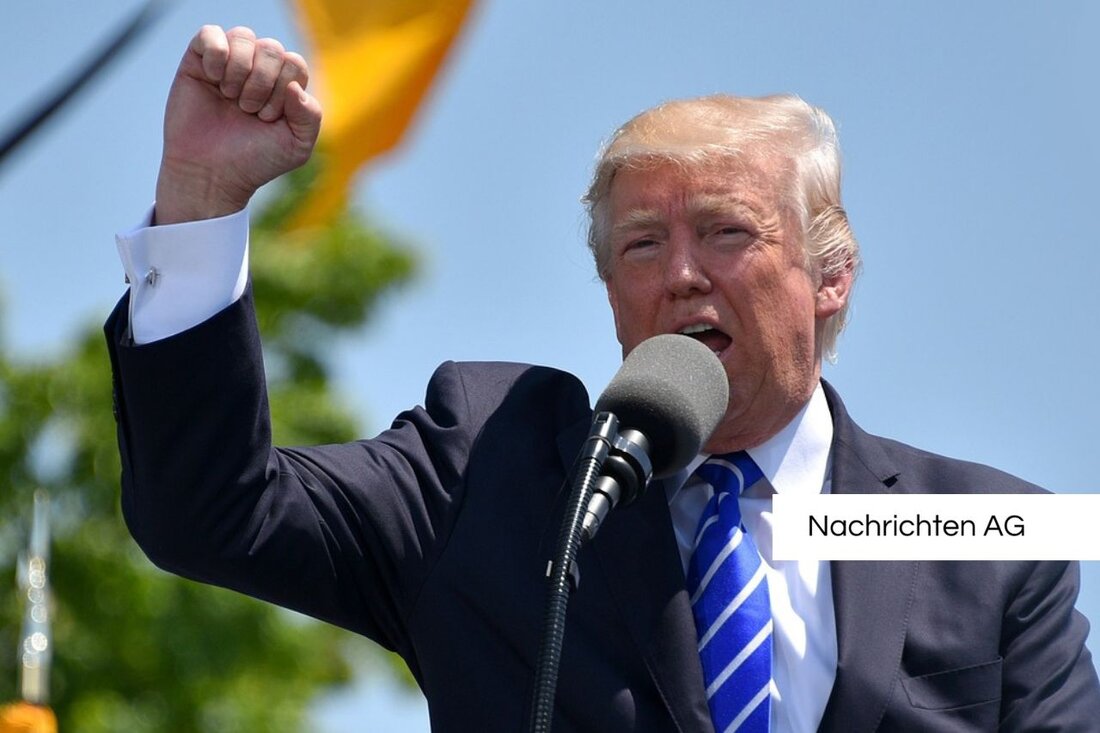Trump defends himself against Epstein allegations: That’s just nonsense!”
The White House is investigating an alleged letter from Trump to Epstein, while the president dismisses the allegations as nonsense.

Trump defends himself against Epstein allegations: That’s just nonsense!”
The White House has said it will support a forensic investigation into the signature on a more than 20-year-old letter to Jeffrey Epstein that is said to be from Donald Trump. However, President Trump himself has vehemently denied the allegations, saying: "That's not my language. That's nonsense." Trump's spokeswoman, Karoline Leavitt, emphasized that the president neither wrote nor signed the letter. The government's statements come in response to Democrats' release of the document, reinforcing the political burden on Trump.
Leavitt accused Democrats of spreading false news to harm Trump. The chairman of the responsible investigative committee, Republican James Comer, supported the president, but ruled out that his committee would examine the old signature in more detail. Amid this political turmoil, fellow party member Thomas Massie expressed a desire for clarification, noting that the signature looked like Trump's.
Epstein affair and its impact
The Epstein affair has placed a heavy political burden on Trump, not least because Epstein was a convicted sex offender who allegedly committed suicide while in custody in 2019. The relationship between Trump and Epstein dates back to the 1990s and early 2000s, when both knew each other privately. Across the political landscape, however, some Republican voters have become increasingly accepting of Trump's handling of the affair: Approval of Trump's behavior rose to 44 percent from 35 percent in July, according to a Reuters and Ipsos poll.
In recent months, Trump has actively sought to minimize the controversy surrounding the Epstein affair and has resisted calls for all relevant documents to be disclosed. Files on the House of Representatives were gradually released. A Wall Street Journal article reported on an album of birthday wishes for Epstein's birthday in 2003, although both the album and the original letter were not published at the time. Trump is fighting back against the Wall Street Journal's portrayal and has filed a lawsuit demanding billions of dollars from the newspaper and Rupert Murdoch.
He described the reporting as fake and a false report. He also clarified: “I don’t draw pictures of women.” The president's spokeswoman reiterated that Trump had not drawn or signed the picture and announced further legal action.
Political scandals in context
The current developments surrounding Trump cast a shadow on the historical constitution of American presidential scandals. From Thomas Jefferson to Bill Clinton, there is a pattern of misconduct and scandal that is not new in American politics. Jefferson was once accused of an alleged affair with his slave Sally Hemings; Andrew Johnson faced impeachment proceedings. Warren G. Harding and Richard Nixon were also brought into the public eye by scandals.
Given this history, it can be said that the Epstein affair and Trump's complex entanglements fit into this context. Questions about moral integrity and political responsibility remain a controversial topic in the USA, which makes signing an old letter once again the focus of current debates.
Some political observers are analyzing the development in the context of voters' continued interest in scandals and affairs that often characterize the lively discussion in the American political arena. The question will also be how this might affect Trump's political future and whether the American electorate is capable of recognizing and questioning historical patterns.
The situation remains dynamic and much depends on the future legal and political steps that Trump and his supporters will take to refute the allegations and regain trust.
For further information about the background and current developments, read the articles from vienna.at, sueddeutsche.de and cicero.de.

 Suche
Suche
